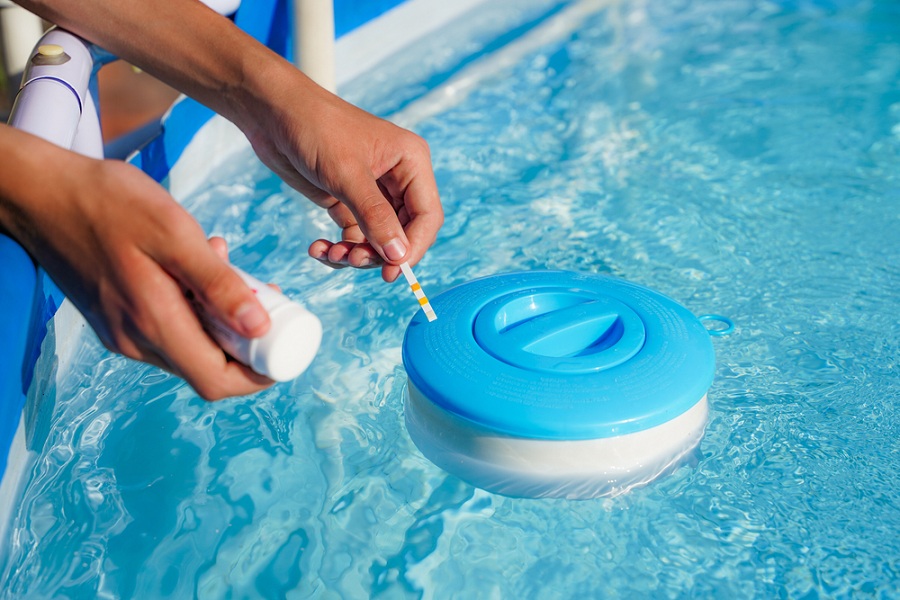Pool chemicals are one of the most important parts of maintaining a swimming pool. They are used to cleanse the water, kill algae, prevent bacteria growth, and remove dirt and debris.
Pool chemicals are also used to treat the water to improve its clarity and quality.
Two Types of Pool Chemicals
There are two general types of pool chemicals: chemical sanitizers and biocides.
Chemical sanitizers are used to kill germs and bacteria in the pool water.
Biocides are used to control more specific types of organisms, such as algae and specific bacteria.
Chemical sanitizers include chlorine, bromine, and ozone. Chlorine is the most common type of sanitizer. Bromine is an alternative to chlorine. Ozone is ionized water and a safe/odor-free alternative to chlorine.
Biocides are used to kill algae and prevent bacterial infections. Algae is a greenish-colored film that grows on the surface of the water. Bacteria include a wide range of microorganisms that cause illness. Of most concern to pool owners are coliform and staph bacteria.
Algae is usually controlled using copper sulfate, copper chloride, or potassium permanganate. Copper is added to the pool water to kill algae. Potassium permanganate is used to break down copper into copper ions. This kills the algae.
Bacterial infections are usually treated with quaternary ammonium compounds. These chemicals are used to disinfect the pool water.
How do I know what chemicals to use and when?
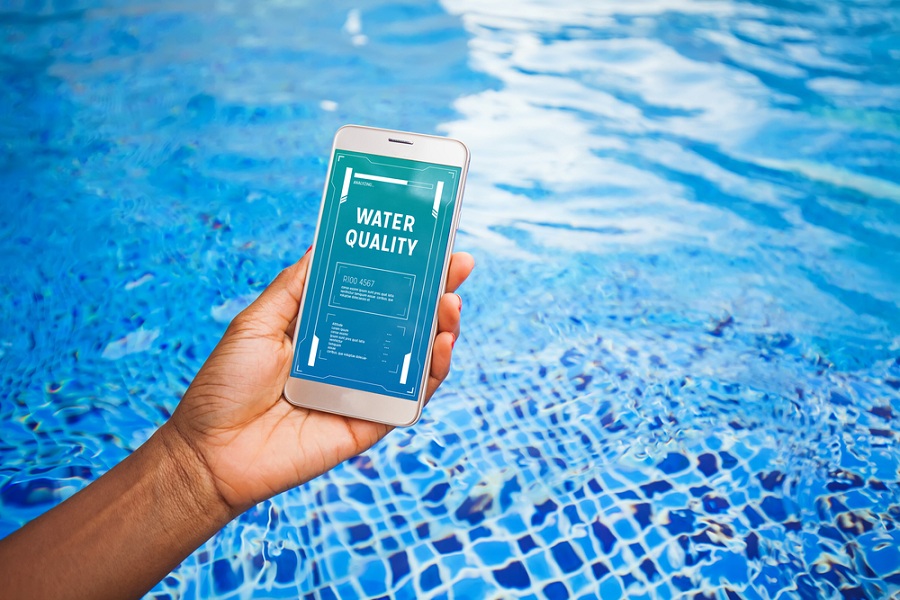
Like anything else in life, time and experience will teach you this.
But here are the basics – and they are really easy to learn:
To determine what kind of chemicals to add to the pool, first test the pH level of the pool water. The pH level should be between 7.0 and 8.5. If the pH level is too high (alkaline), then acid must be added to lower the pH level. If the pH level of the water is too low (acidic), then alkaline must be added to raise the pH level.
Next, test the hardness of the water. Hardness refers to the amount of calcium and magnesium dissolved in the water. The ideal hardness level is between 50 and 100 ppm.
The next step is to measure the concentration of chloramines in the pool water. Chloramine is a combination of ammonia and free chlorine. It is used to kill bacteria and prevent algal growth. A good concentration of chloramines is between 0.1 and 1.0 ppm.
Chlorine is added to the pool to kill bacteria and prevent algae growth. The ideal concentration of chlorine is between 0.2 and 2.0 ppm.
In addition, the pool water temperature should ideally be maintained between 68°F and 78°F ideally to inhibit the growth of algae and other dangerous biologicals. If your water becomes too warm, we recommend adding pool shock to maintain a proper chlorine level.
How often should I adjust my pool chemicals?
It is recommended that pool chemicals be tested and adjusted every month at least. However, once per week is better and may be necessary if your pool is under trees or near them, as the more biological matter will be deposited in that case.
When adjusting pool chemicals, always follow the manufacturer’s instructions. Never mix different kinds of chemicals together to try something new.
Also: when your pool needs more than one chemical, make sure you follow instructions re. which one to add first, second, and third. Or you can accidentally cancel them out.
What happens if I don't use enough chemicals?
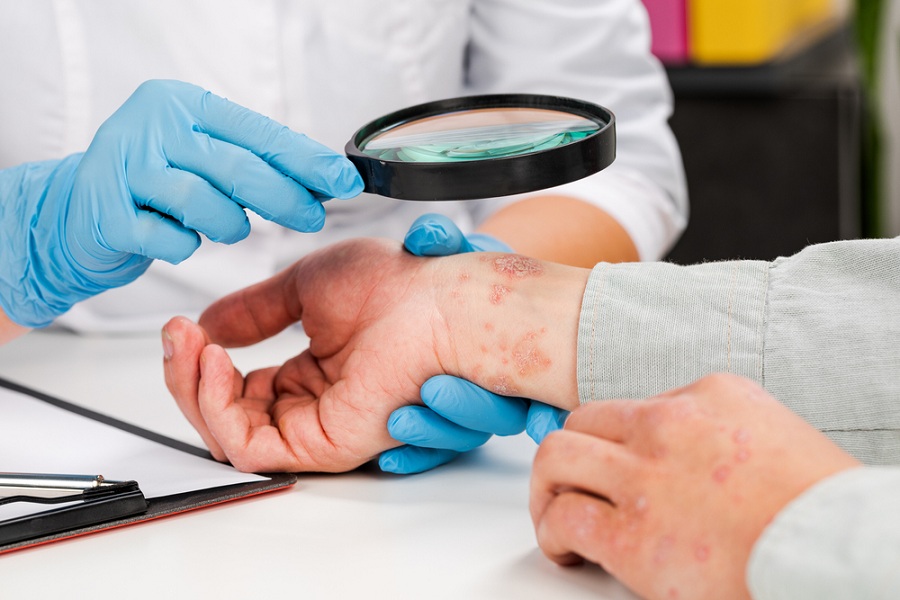
If you don’t use enough chemicals, then the pool may become contaminated with harmful organisms.
Harmful organisms can cause serious health problems. For example, they can lead to skin rashes, respiratory illnesses, eye irritation, and gastrointestinal disorders.
How much does it cost to maintain a pool?
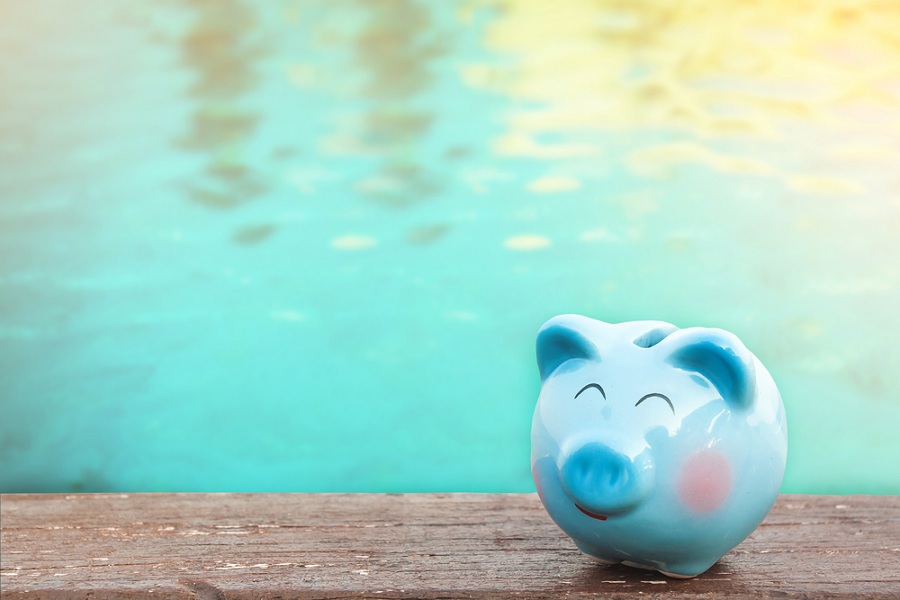
Maintaining a pool costs money, but not as much as you might think.
To keep the pool clean and safe, you need to purchase pool chemicals and filter maintenance products.
In addition, you need to hire a professional to install and repair the equipment.
You can save money by purchasing pool chemicals in bulk online or from big-box retail stores. Many stores offer discounts on large quantities of pool chemicals.
If you want to save money on pool chemicals, consider buying a pool filtration system that uses ultraviolet light or an ionizer instead of chlorine. UV & ionizer cleaners are safer than chlorine cleaners and leave no odor. That said, they won’t work for every type of pool and climate. And they are not cheap.
How do I get started?
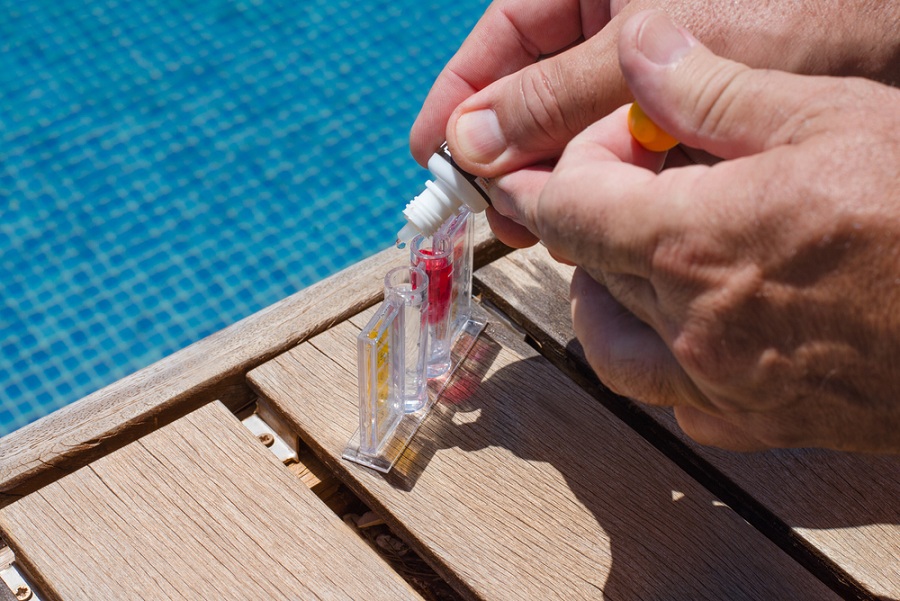
Step 1: Read the Label On the Container
First, read the label on the container of pool chemicals. Then, follow the directions carefully. You will find these directions on the product packaging.
Step 2: Test Your Pool Water
Before adding any pool chemicals, test the pH level of your pool water. This is done using an inexpensive testing kit.
Step 3: Measure the Hardness Level
Measure the hardness level of your pool water using a simple test strip.
Step 4: Check for Chloramines
Before adding any pool chemicals, check the concentration of chloramines. This is done using a simple testing kit.
Step 5: Clean Your Pool's Surfaces
Brush the pool surfaces thoroughly to remove any grime, buildup, and residual algae so it will flow into your pool’s filter before you add chemicals.
Step 6: Clean Your Pool Filter (if it is time)
Before treating your water, you may want to clean your pool filter (if it’s time again) to rid it of residual biological material.
Step 7: Add Chemicals
When adding pool chemicals, always follow the manufacturer’s recommendations. Do not combine different types of chemicals together.
Step 8: Test the Pool Water Again
Test the pH level of your new pool water again. If necessary, repeat steps 1 through 6.
Step 9: Maintain Your Pool Equipment
Keep your pool equipment clean and well-maintained.
Step 10: Monitor Your Pool
Monitor your pool regularly. Check the pH level of your water. Also, monitor the amount of chlorine present in the water.
Pool Maintenance Tips
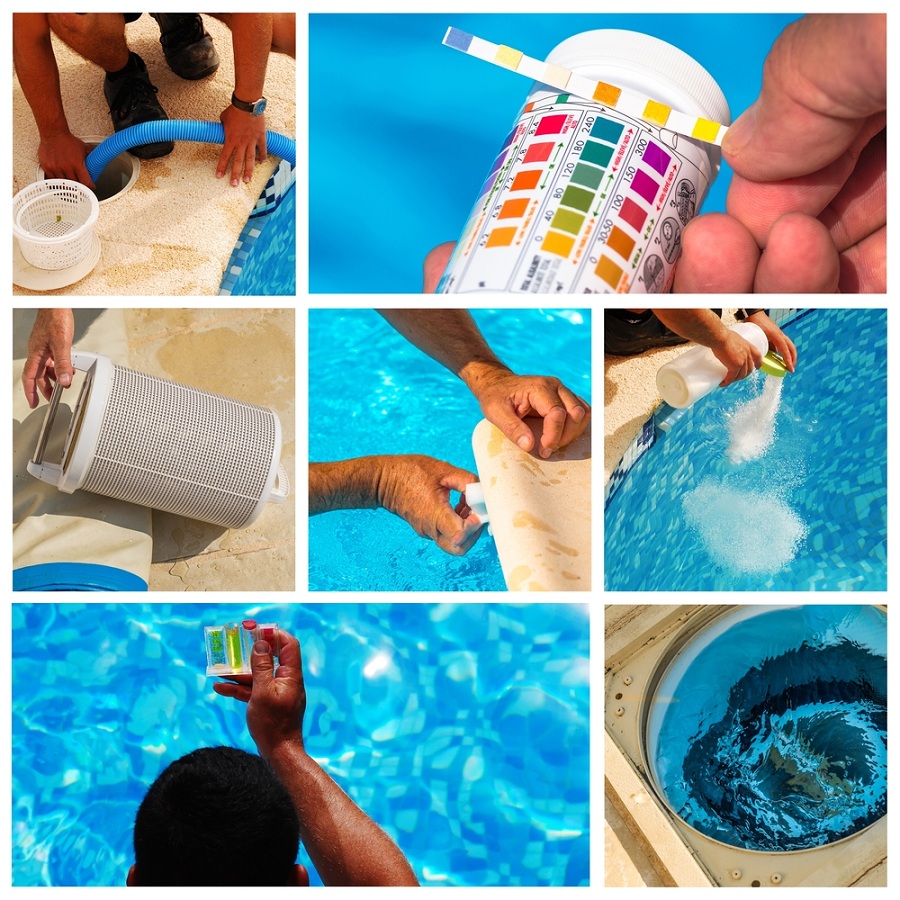
The following tips can help you to maintain the proper balance between chemical levels in your swimming pool.
1. Run your pool pump daily for at least one hour. A properly functioning pump helps circulate the water throughout the system. It also prevents algae growth.
2. Avoid leaving your pool unattended for long periods of time. Unattended pools are more likely to have leaks develop. Leaks allow bacteria into the water. Bacteria can cause dangerous conditions such as skin infections.
3. Clean or change your pool filter every three months at a minimum. Filters trap dirt and debris. They also prevent algae growth.
4. Keep your pool water level up. Don’t let your pool water level fall below the skimmer pickup line, or you won’t remove floating debris. This can lead to more biologicals contaminating your pool.
5. Never add additional chemicals to your pool until the previous batch has completely dissolved. Doing so can result in serious health problems.
6. Use only approved pool chemicals. Some chemicals may be toxic if used improperly.
7. Store chemicals safely in a cool and dry location. Store them out of reach of children and pets.
8. Follow the instructions on the package when mixing chemicals. Mixing too much or too little of the correct type of chemicals can damage your pool.
9. Be sure to rinse off your hands before entering the pool area. Swimmers often carry germs that enter their mouths through cuts or sores on their lips and noses.
10. Avoid getting wet while swimming. Wetting yourself increases your chances of developing bacterial infections.
11. Keep your pool covered during rainstorms. Rainwater contains large amounts of salt, which can harm your pool.
12. Make sure your pool is free of insects and rodents. These animals can contaminate pool water.
13. Have your pool inspected by a professional once a year. Professional inspections ensure that your pool meets current safety standards.
14. Maintain your pool cover. Covering your pool will protect it against extreme weather conditions.
15. Install a skimmer basket. Skimmer baskets collect floating leaves, twigs, and other debris from the water’s surface. This keeps the water clear and safe for swimmers.
16. Prevent algae growth. Algae grow best in warm temperatures. To reduce algae growth, keep your pool temperature below 90 degrees Fahrenheit (32 degrees Celsius).
17. Keep an eye on your pool’s pH level. Too many acidic substances can cause algae growth.
18. Remove any dead plants from around your pool. Dead plant material attracts mosquitoes and other pests.
19. Clean your pool walls regularly. Scrubbing away accumulated dirt with a brush or sponge will make your pool look cleaner than ever.
20. Keep your pool clean. Pool cleaners remove dirt and debris from the bottom and sides of the pool.
21. Check your pool’s chlorine levels monthly. Chlorine kills harmful bacteria and helps keep your pool safe for swimming.
Basic Pool Maintenance & Chemistry 101
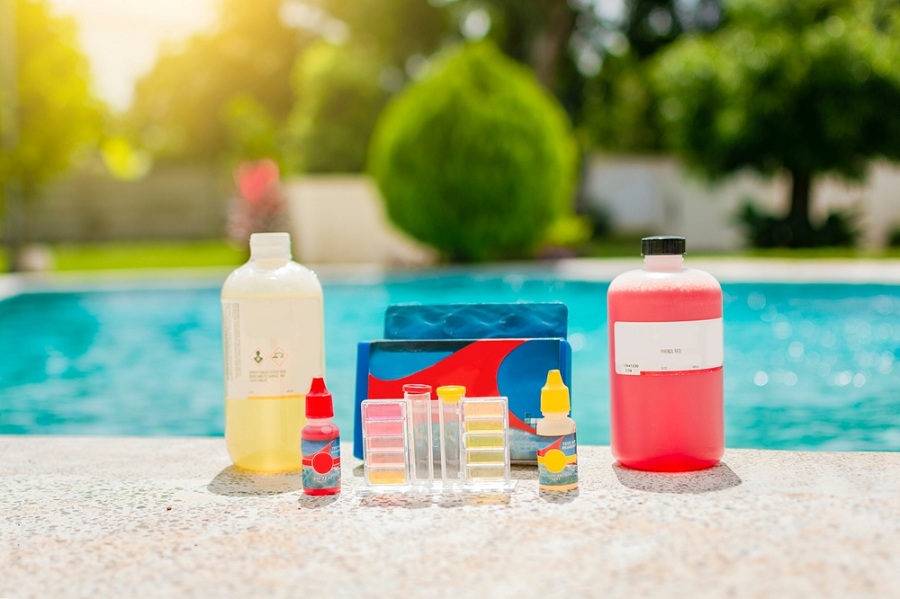
Water Balance
The basic concept behind maintaining a healthy pool is simple: Water must stay balanced. If the water becomes too acidic, alkaline, or salty, you need to adjust the balance.
Acidity
If the pool is too acidic, you need to add more base. Adding base raises the pH level. A pH test kit is available at most hardware stores. You should have a reading between 7.0 and 8.0. Anything above this range is considered too acidic.
Alkalinity
If the pool is not alkaline enough, you need to lower its pH level. Lowering the pH level lowers the amount of acidity in the pool. The easiest way to do this is to use a water conditioner. Most water conditioners are sold at home improvement centers.
Salinity
If the pool has too much salt, you need to dilute the salt content. Diluting the salt reduces the concentration of dissolved salts in the water.
There are several ways to accomplish this. One method is to add fresh water to the pool. Another option is to use a water softener. Both methods work well but require extra time and effort.
Hardness
Hardness refers to the number of minerals in the water. Calcium is one mineral that affects hardness. A hard water test kit measures the hardness of your pool water.
Chlorine Levels
Chlorine is added to pools as a disinfectant. Chlorine works by killing germs and parasites. However, if the chlorine level is too high, it may damage the pool’s equipment. Chlorine tests are done using a chlorometer.
FAQs
Q. How often should I test my pool?
A. Test your pool at least every month. This ensures that all chemicals are working correctly.
Q. What happens when I don’t test my pool?
It can be dangerous! Your pool could become contaminated with bacteria or viruses, which can cause serious illnesses. Also, if you don’t test your pool, you won’t know if there are any problems until they’re already too late.
Q. Do I need to test my pool every month?
Yes! Testing your pool regularly will help prevent any potential problems from developing.
Q. Can I just buy a water conditioner instead of testing my pool?
No! Using a water conditioner only masks the problem. Instead, you should test your pool monthly to ensure everything is okay.
Q. Is it safe for me to swim in my pool after testing it?
Yes! Swimming in an un-tested pool is perfectly fine. However, swimming in a tested pool is safer because you’ll know what’s happening inside.
Q. Does my pool need a filter?
Yes! Filters remove dirt and debris from the water. They keep your pool clean and clear.
Q. Should I change my pool’s filter once a week or once a month?
You should change your pool’s filter once a month. This helps reduce bacteria growth and keeps your pool running smoothly.
Q. How long does it take to clean or change my pool filter?
Changing your pool’s filters takes about 30 minutes. You can do it yourself using a simple garden hose with a high-speed nozzle attached.
Q. Why should I hire a professional to test my pool?
If you want to save money and avoid making mistakes, hiring a professional is the way to go. Hiring a pro will ensure that your pool is always in good shape.

